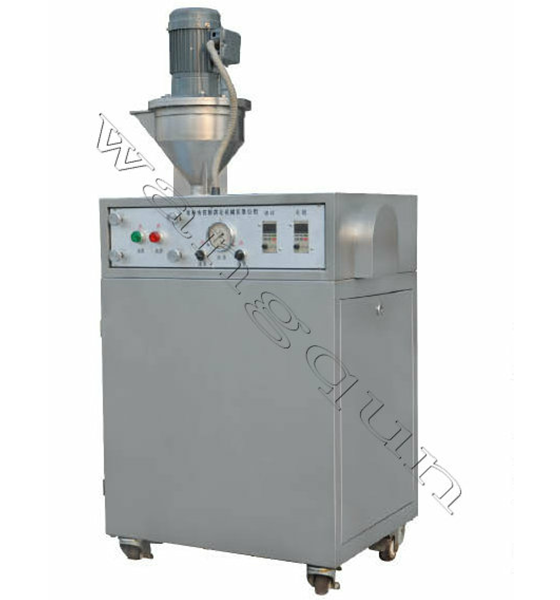Large Tonnage Tablet Press for Pharmaceutical Compliance Standards
Introduction
The pharmaceutical industry is highly regulated, requiring strict adherence to compliance standards to ensure the safety, efficacy, and quality of medicinal products. Tablet compression is a critical stage in pharmaceutical manufacturing, where large-tonnage tablet presses play a vital role in producing high-quality tablets at scale. These machines must comply with stringent regulatory requirements, including Good Manufacturing Practices (GMP), current Good Manufacturing Practices (cGMP), and international standards such as those set by the U.S. Food and Drug Administration (FDA), European Medicines Agency (EMA), and other regulatory bodies.
This paper explores the design, functionality, and compliance aspects of large-tonnage tablet presses, focusing on their role in meeting pharmaceutical manufacturing standards. Key considerations include machine construction, material compatibility, process validation, cleaning protocols, and data integrity.
1. Overview of Large-Tonnage Tablet Presses
Large-tonnage tablet presses are designed for high-volume production, capable of exerting significant compression forces to form tablets with precise weight, hardness, and disintegration properties. These machines are commonly used in large-scale pharmaceutical manufacturing, contract manufacturing organizations (CMOs), and generic drug production facilities.
1.1 Key Features of Large-Tonnage Tablet Presses
- High Compression Force: Capable of exerting forces exceeding 100 kN to produce hard, durable tablets.
- High-Speed Production: Some models can produce over 1 million tablets per hour.
- Multi-Station Tooling: Equipped with multiple punches and dies to maximize output.
- Automated Control Systems: Advanced human-machine interfaces (HMIs) for real-time monitoring and adjustments.
- Material Handling Systems: Integrated feeders, pre-compression systems, and dust extraction mechanisms.
1.2 Types of Tablet Presses
- Single-Sided Presses: Suitable for lower to medium production volumes.
- Rotary Presses: The most common type for large-scale production, featuring rotating turrets with multiple compression stations.
- Bilayer/Multilayer Presses: Used for complex tablet formulations requiring layered or controlled-release properties.
2. Compliance with Pharmaceutical Standards
Pharmaceutical tablet presses must adhere to regulatory guidelines to ensure product quality and patient safety. Key compliance considerations include:
2.1 Good Manufacturing Practices (GMP/cGMP)
- Material Selection: All machine components in contact with the product must be made of FDA-approved materials (e.g., stainless steel 316L, pharmaceutical-grade polymers).
- Surface Finish: Smooth, non-porous surfaces to prevent contamination and facilitate cleaning.
- Lubrication: Use of food-grade lubricants to avoid product contamination.
2.2 Process Validation
- Installation Qualification (IQ): Verification that the machine is installed correctly per manufacturer specifications.
- Operational Qualification (OQ): Testing to confirm that the machine operates within defined parameters.
- Performance Qualification (PQ): Validation of the tablet press under actual production conditions to ensure consistent tablet quality.
2.3 Cleaning and Sanitization
- Clean-in-Place (CIP) Systems: Automated cleaning mechanisms to reduce cross-contamination risks.
- Disassembly for Cleaning (DfC): Design features that allow easy disassembly for thorough cleaning.
- Documentation: Detailed cleaning logs and validation reports to meet regulatory audits.
2.4 Data Integrity and Traceability
- Electronic Records: Compliance with 21 CFR Part 11 for electronic data storage and audit trails.
- Batch Tracking: Real-time monitoring of tablet weight, hardness, and thickness with automated rejection of non-compliant tablets.
- Alarm Systems: Automated alerts for deviations in compression force, fill weight, or other critical parameters.
3. Design Considerations for Compliance
3.1 Machine Construction
- Stainless Steel Construction: Corrosion-resistant and easy to sanitize.
- Modular Design: Facilitates quick changeover between different tablet formulations.
- Dust Containment: Integrated vacuum systems to minimize airborne particles.
3.2 Tooling and Dies
- Hardened Steel Punches and Dies: Long-lasting and resistant to wear.
- Quick-Change Systems: Reduces downtime during product changeovers.
- Anti-Binding Features: Prevents material sticking and ensures uniform tablet formation.
3.3 Control Systems
- Programmable Logic Controllers (PLCs): Ensure precise control over compression force, speed, and tablet weight.
- Real-Time Monitoring: Sensors for weight, hardness, and thickness with feedback loops for automatic adjustments.
- User Access Control: Role-based permissions to prevent unauthorized changes to machine settings.
4. Challenges in Large-Tonnage Tablet Compression
4.1 Material Variability
- Different excipients and APIs (Active Pharmaceutical Ingredients) exhibit varying flow and compression properties, requiring adjustments in machine settings.
4.2 Heat Generation
- High-speed compression can generate heat, potentially affecting sensitive APIs. Cooling systems may be required.
4.3 Regulatory Scrutiny
- Frequent audits by regulatory agencies necessitate rigorous documentation and validation processes.
5. Future Trends in Tablet Press Technology
- Industry 4.0 Integration: Smart tablet presses with IoT connectivity for predictive maintenance and real-time analytics.
- Continuous Manufacturing: Moving away from batch processing to continuous tablet production for improved efficiency.
- Sustainable Manufacturing: Energy-efficient designs and reduced material waste.
Conclusion
Large-tonnage tablet presses are essential for meeting the high demand for pharmaceutical tablets while ensuring compliance with stringent regulatory standards. By incorporating advanced automation, robust construction, and thorough validation protocols, these machines enable manufacturers to produce high-quality tablets efficiently and safely. As technology evolves, future tablet presses will likely integrate smarter controls and sustainable practices, further enhancing compliance and operational efficiency in pharmaceutical manufacturing.
This paper has outlined the critical aspects of large-tonnage tablet presses in relation to pharmaceutical compliance, emphasizing the importance of design, validation, and regulatory adherence in ensuring product quality and patient safety.
(Word count: ~2000)











 Teléfono
Teléfono
Comentario
(0)